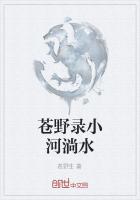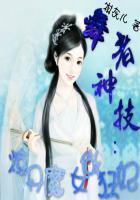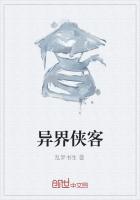This function of the stage, as a reconstructing and reorganizing agent of accepted moral truths, came to me with overwhelming force as I listened to the Passion Play at Oberammergau one beautiful summer's day in 1900. The peasants who portrayed exactly the successive scenes of the wonderful Life, who used only the very words found in the accepted version of the Gospels, yet curiously modernized and reorientated the message. They made clear that the opposition to the young Teacher sprang from the merchants whose traffic in the temple He had disturbed and from the Pharisees who were dependent upon them for support. Their query was curiously familiar, as they demanded the antecedents of the Radical who dared to touch vested interests, who presumed to dictate the morality of trade, and who insulted the marts of honest merchants by calling them "a den of thieves." As the play developed, it became clear that this powerful opposition had friends in Church and State, that they controlled influences which ramified in all directions. They obviously believed in their statement of the case and their very wealth and position in the community gave their words such weight that finally all of their hearers were convinced that the young Agitator must be done away with in order that the highest interests of society might be conserved. These ****** peasants made it clear that it was the money power which induced one of the Agitator's closest friends to betray him, and the villain of the piece, Judas himself, was only a man who was so dazzled by money, so under the domination of all it represented, that he was perpetually blind to the spiritual vision unrolling before him. As I sat through the long summer day, seeing the shadows on the beautiful mountain back of the open stage shift from one side to the other and finally grow long and pointed in the soft evening light, my mind was filled with perplexing questions. Did the dramatization of the life of Jesus set forth its meaning more clearly and conclusively than talking and preaching could possibly do as a shadowy following of the command "to do the will"?
The peasant actors whom I had seen returning from mass that morning had prayed only to portray the life as He had lived it and, behold, out of their simplicity and piety arose this modern version which even Harnack was only then venturing to suggest to his advanced colleagues in Berlin. Yet the Oberammergau fold were very like thousands of immigrant men and women of Chicago, both in their experiences and in their familiarity with the hard facts of life, and throughout that day as my mind dwelt on my far-away neighbors, I was reproached with the sense of an ungarnered harvest.
Of course such a generally uplifted state comes only at rare moments, while the development of the little theater at Hull-House has not depended upon the moods of any one, but upon the genuine enthusiasm and sustained effort of a group of residents, several of them artists who have ungrudgingly given their time to it year after year. This group has long fostered junior dramatic associations, through which it seems possible to give a training in manners and morals more directly than through any other medium. They have learned to determine very cleverly the ages at which various types of the drama are most congruous and expressive of the sentiments of the little troupes, from the fairy plays such as "Snow-White" and "Puss-in-Boots" which appeal to the youngest children, to the heroic plays of "William Tell,"
"King John," and "Wat Tyler" for the older lads, and to the romances and comedies which set forth in stately fashion the elaborated life which so many young people admire. A group of Jewish boys gave a dramatic version of the story of Joseph and his brethren and again of Queen Esther. They had almost a sense of proprietorship in the fine old lines and were pleased to bring from home bits of Talmudic lore for the stage setting. The same club of boys at one time will buoyantly give a roaring comedy and five years later will solemnly demand a drama dealing with modern industrial conditions. The Hull-House theater is also rented from time to time to members of the Young People's Socialist League who give plays both in Yiddish and English which reduce their propaganda to conversation. Through such humble experiments as the Hull-House stage, as well as through the more ambitious reforms which are attempted in various parts of the country, the theatre may at last be restored to its rightful place in the community.
There have been times when our little stage was able to serve the theatre libre. A Chicago troupe, finding it difficult to break into a trust theater, used it one winter twice a week for the presentation of Ibsen and old French comedy. A visit from the Irish poet Yeats inspired us to do our share towards freeing the stage from its slavery to expensive scene setting, and a forest of stiff conventional trees against a gilt sky still remains with us as a reminder of an attempt not wholly unsuccessful, in this direction.















